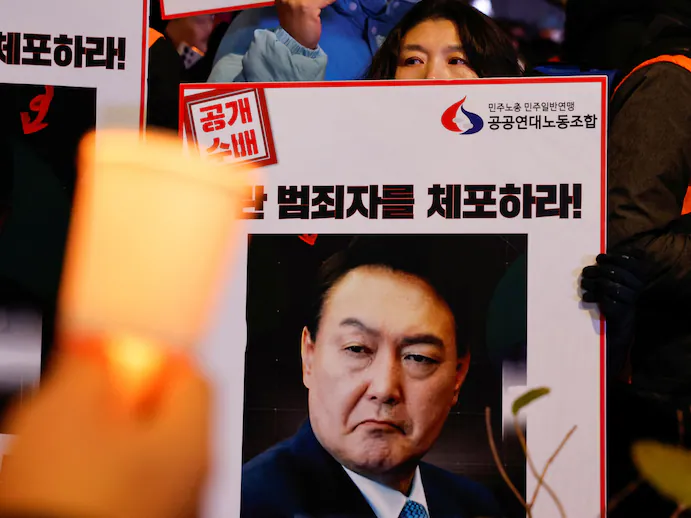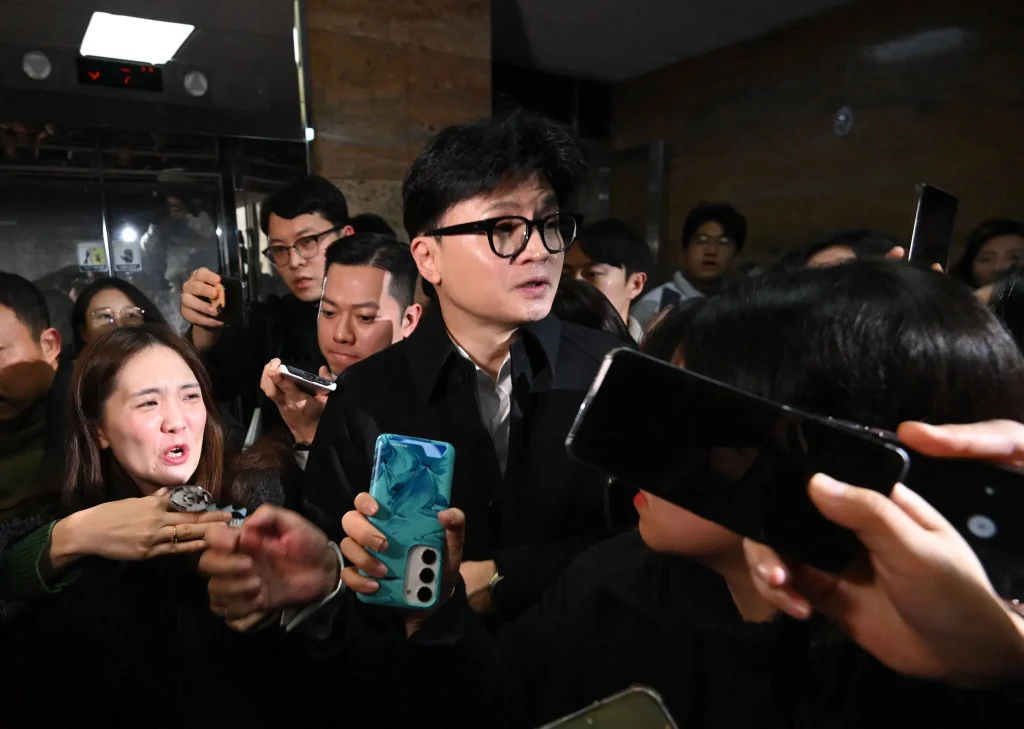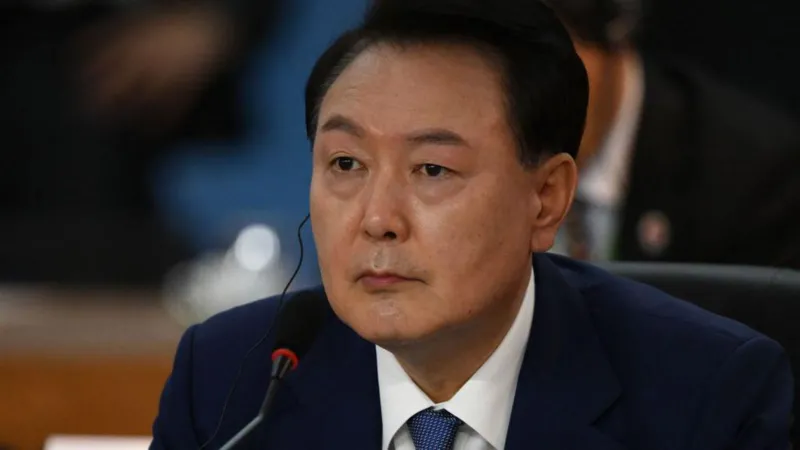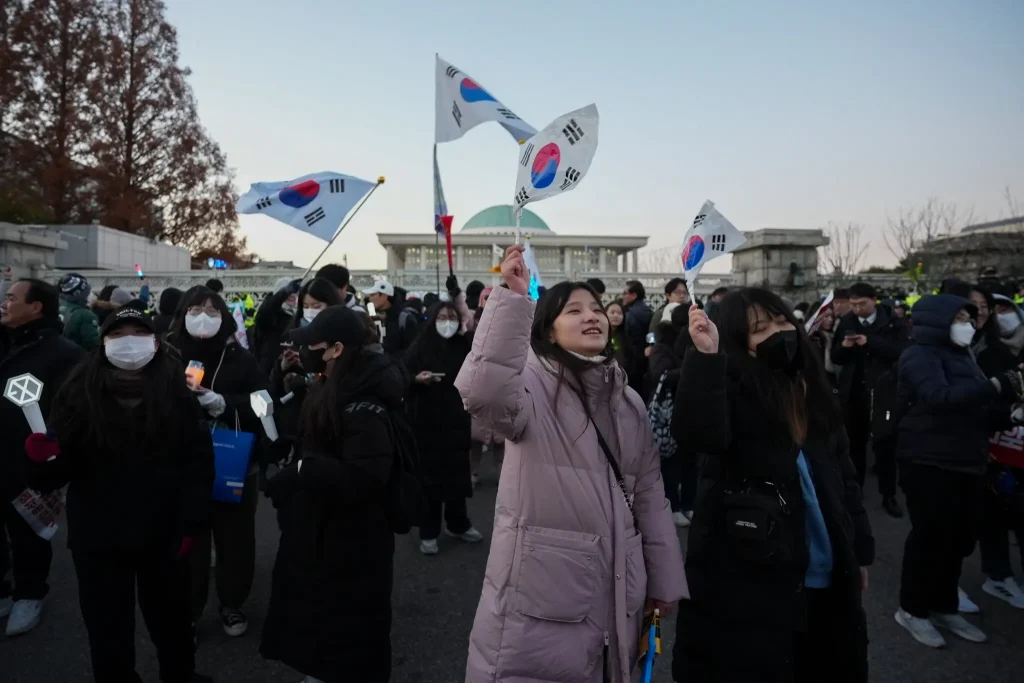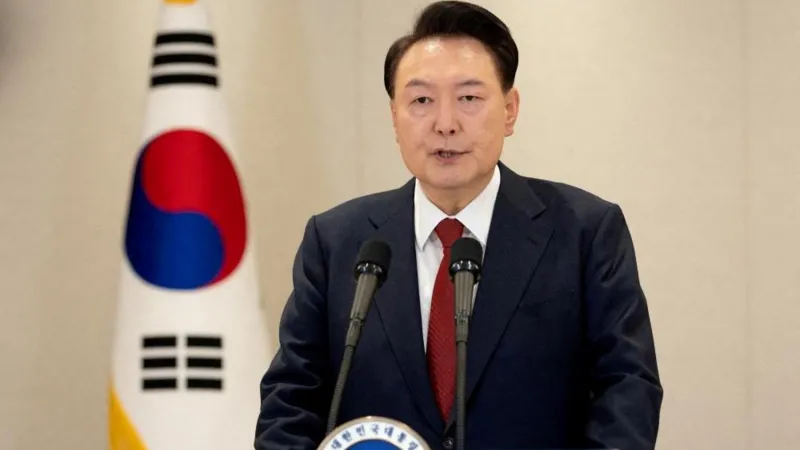South Korea’s parliament votes to impeach President Yoon Suk Yeol over his martial law order

In a stunning political development, South Korea’s parliament has voted to impeach President Yoon Suk Yeol over his controversial decision to impose a martial law order during a period of political unrest. The impeachment vote, which came after days of intense debate and mounting opposition to the president’s actions, represents a significant challenge to his leadership. This unprecedented move has shaken the political landscape in South Korea, sparking debates about the balance of power between the executive and legislative branches and raising concerns about the future of democratic governance in the country.
The impeachment was triggered by President Yoon’s order to impose martial law in response to widespread protests and civil unrest, which had intensified in the wake of his administration’s controversial policies. These policies, particularly related to labor rights and economic reform, had sparked significant opposition from unions, student groups, and various civil society organizations. The protests grew larger and more vocal, with many accusing the government of overreaching and undermining basic freedoms. In a bid to restore order, President Yoon’s government invoked martial law, a move that critics described as an overreaction and a violation of democratic principles.
The martial law order, which was issued under the pretext of maintaining public order, gave the military sweeping powers to suppress dissent and limit civil liberties. This move was met with widespread condemnation, both domestically and internationally, with many arguing that it was an unconstitutional use of presidential power. Critics pointed out that martial law should only be used in the most extreme circumstances, and that President Yoon’s decision was an unjustified response to what they viewed as manageable civil unrest.
The vote to impeach President Yoon came after a prolonged debate in South Korea’s National Assembly. Opposition lawmakers argued that the president’s actions were a direct assault on the country’s democratic values and a threat to the rule of law. They pointed to the heavy-handed nature of the martial law order, which included the suspension of certain civil rights and the deployment of military personnel to control protests, as evidence that Yoon had overstepped his constitutional authority.
Proponents of the impeachment also highlighted concerns about the erosion of checks and balances within South Korea’s political system. The country’s constitution limits the powers of the executive branch, and any attempt by a sitting president to override these limits is seen as a dangerous precedent. The South Korean constitution clearly outlines the separation of powers between the executive, legislative, and judicial branches, and critics argued that President Yoon’s decision to impose martial law was an abuse of executive power that undermined the democratic framework of the country.
Supporters of President Yoon, however, have defended his actions as necessary for maintaining national security and public order. They argue that the president had no choice but to act decisively in the face of violent protests that were threatening to destabilize the country. According to this viewpoint, the martial law order was not intended to curtail freedoms but to restore peace and protect citizens. President Yoon himself has expressed confidence that his actions were justified and has vowed to fight the impeachment in court.
The vote to impeach President Yoon marks a significant moment in South Korea’s democratic history. While the impeachment process is far from over, and it remains to be seen whether the Constitutional Court will uphold the decision, the vote reflects growing discontent with Yoon’s leadership. If the impeachment is upheld, Yoon would be removed from office, and a new president would be elected in a special election. This would have far-reaching consequences for South Korea’s political future, as it would signal a shift away from the conservative policies of Yoon’s administration.
The impeachment vote also highlights the deepening political divide in South Korea. The country has long been divided between progressive and conservative factions, and the martial law controversy has intensified these tensions. On one side, the conservative government has faced criticism for its approach to governance, while on the other side, the opposition parties argue that the president’s actions reflect a broader pattern of authoritarianism and disregard for democratic norms.
Internationally, the impeachment has drawn significant attention. South Korea, a key U.S. ally in East Asia, has long been seen as a model of democracy in the region. Any move that undermines democratic governance in the country is likely to have repercussions for its international standing. Countries that have long supported South Korea’s democratic institutions are watching closely to see how the situation unfolds.
In conclusion, the impeachment of President Yoon Suk Yeol over his martial law order represents a critical juncture in South Korea’s political trajectory. The decision to invoke martial law has sparked a national debate over the limits of executive power and the protection of civil liberties. With the National Assembly’s vote to impeach, President Yoon faces an uncertain future, as the country’s constitutional court will ultimately determine whether he will remain in office. Regardless of the outcome, the controversy surrounding this issue is likely to shape South Korea’s political landscape for years to come.


